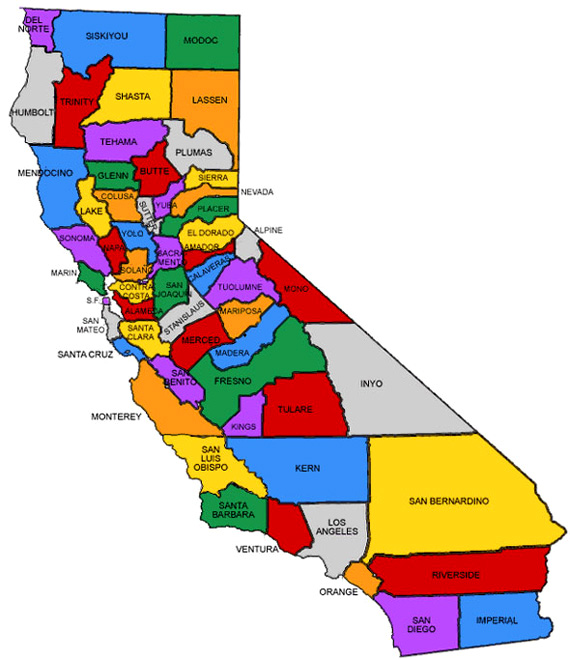
This November, Californians, already widely regarded as progressive on renewable energy, will have two controversial ballot initiatives to vote on. Propositions 7 and 10 seem, on the surface, to be sure things in a state that itself is the world’s third largest solar power market. Yet, both propositions are facing fierce opposition from seemingly unlikely sources. From the Sierra Club to utility companies, critics are lining up to fight…clean energy?
Prop 7
Proposition 7, or the California Solar and Clean Energy Initiative, would dramatically beef up California’s renewable energy standards. It would require all the state’s utilities to get at least half their electricity from renewable sources by 2025. In order to facilitate this, the measure would also speed up the permit process for large renewable power plants and eliminate caps on penalties for utilities who do not comply.
Looking at such aggressive numbers, it is easy to see the argument put forth by proponents of Prop 7. They claim it would catapult California into the worldwide lead in renewable energy, is essential to curbing greenhouse gas emissions, and would create nearly 400,000 new high-paying jobs. These are very sweet words in the ears of many California voters, who have long been pushing for clean, independent energy sources. But is it the fabled poison apple?
That is what opponents of the measure, led by California’s utilities, are claiming. Not only are the standards unreachable in the given time frame, but the law is poorly written and leaves several loopholes. For instance, opponents claim that the measure removes the cap on penalties for non-compliance; it actually reduces them from 5% to 1% and gives no specific language regarding enforcement of the measure.
Prop 10
Proposition 10, also called the California Alternative Fuels Initiative, is the child of Texas oil billionaire T. Boone Pickens. Clean Energy Fuels, a natural gas company Pickens founded, has funneled more than $3.5 million into the promotion of the measure. Essentially, Prop 10 would allow a $5 billion bond to support the research, development, and purchase of alternative fuels and alternative-fuel vehicles. Like Prop 7, Prop 10 purports to enhance California’s already admirable clean energy portfolio and significantly curb greenhouse gas emissions.
Over half of the allocated funds would go toward rebates for purchase of high-efficiency alternative vehicles or hybrids like the Toyota Prius (Opponents claim that this is in fact the only car that qualifies). Much of the remaining money would go toward research and development. Pickens, critics argue, stands to benefit hugely from the law’s passage and would likely be the only company to do so. Furthermore, the money would come from California’s General Fund or, in other words, taxpayer dollars. In fact, opponents argue that the bill would reach nearly $10 billion before being paid off; not a good sign for a state already in the throes of a $15 billion deficit.
There is a laundry list of opponents to Prop 10. Rather surprisingly, most environmental groups oppose the measure, saying it focuses too narrowly on natural gas which, while it is much cleaner than standard diesel and gasoline-powered vehicles, is non-renewable and not a long-term solution. Anthony Rubenstein, an environmental leader and former chair of Californians for Clean Energy, calls the measure “deceptive” and “counterproductive,” a sentiment resonated by a wide range of interested groups. One of their biggest arguments is a lack of accountability in the measure. There is, they assert, nothing stopping companies such as Clean Energy Fuels from purchasing vehicles in California, reaping the benefits of the generous rebates, and then immediately driving them over state lines to be used elsewhere.
Consensus?
Ironically, two of the most aggressive, at least superficially, clean energy ballot initiatives in history are vehemently opposed by most of the groups one would expect to support them. Both seem to favor the corporate side of the renewable energy industry. T. Boone Pickens has gained widespread admiration for his rather sudden and aggressive move toward renewable energy, especially wind power. Nonetheless, he is a business man and Proposition 10, its opponents would say, is a business proposition. Both Prop 7 and 10 are as vigorously opposed as they are cunningly titled and promoted. Californians can be sure of one thing: that November 4, 2008 will define the future of renewable energy in their state.
Prop 10 is bond that will cost $10 million.
Prop 7 does not affect your taxes.
How are they similar?
Prop 10 would cost Californians $10 BILLION to repay the bonds. Most of the handouts ($2.5 billion) do NOT go to “high efficiency” vehicles like hybrids. They go to “clean” trucks. Prop 10’s definition of “clean” exclude hybrids, because they are partially fueled by gasoline. Prop 10’s definition of “clean” is tailor made to fund natural gas powered trucks, at up to $50,000 per new truck purchased. Guess what – T Boone Pickens dominates the natural gas gas station business. Prop 10 is a bonanza for Pickens.
The California League of Conservation Voters and the Sierra Club OPPOSE PROP 10, because it is a phony, pretending to be green. It diverts precious dollars away from alternative energy options that have a future and onto a dead-end fossil fuel road.
check out: http://www.stopprop10.org